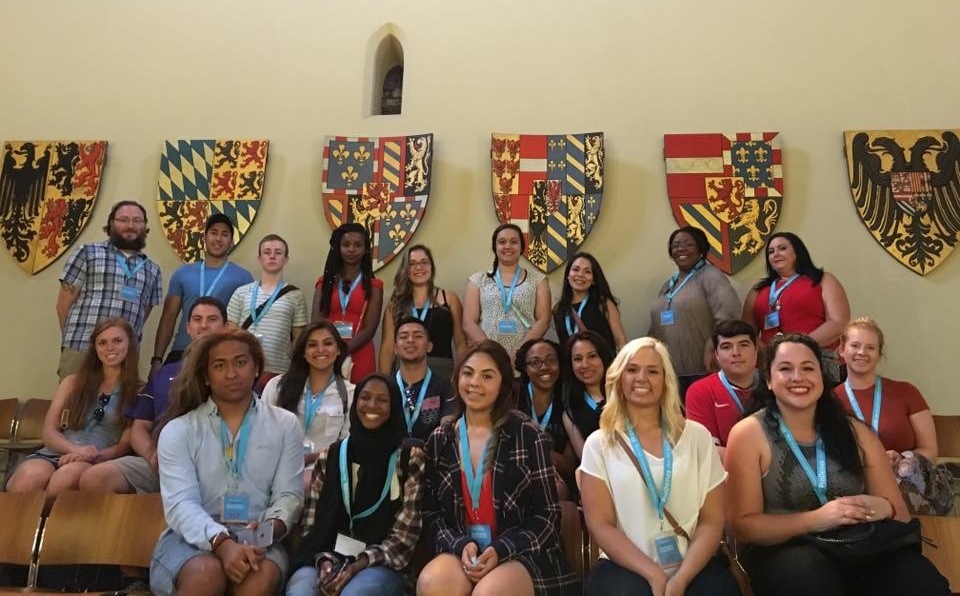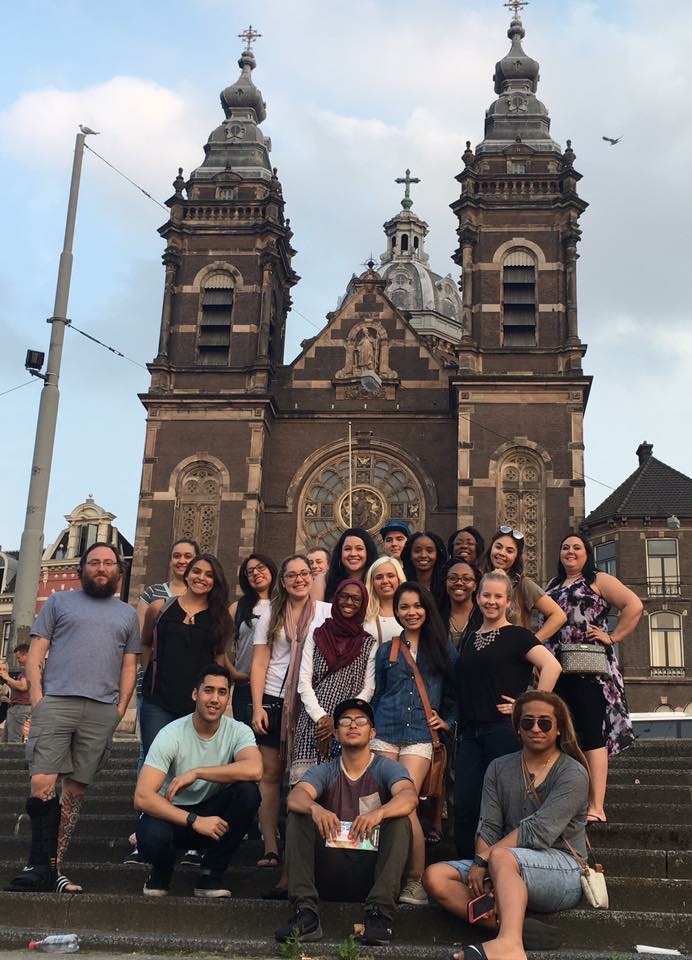Study Abroad Alumni Interview: Reggina Harper
Reggie participated in the study abroad program in the Netherlands! Read on to learn more about her time abroad.
Reggina Harper, BA Criminal Justice ’17, studied abroad in the Netherlands during the summer of 2016 through UWT’s Comparative Criminal Justice Systems program. Now a year later, Reggie, a graduate of UW Tacoma, has reflected on how her study abroad experience has influenced her, as she will begin her Master’s degree in Social Work at UWT in the fall of 2017. She writes, “As a criminal justice major and future social worker, my study abroad experience has prepared me to deal with a myriad of different individuals from various cultures and made me more sensitive to other people's values and norms, which will be useful when working with marginalized populations in the future.”

What originally interested you in study abroad?
As a child, I always dreamed about visiting a foreign country and I saw my opportunity when I decided to return to college after fighting a chronic illness that ended my healthcare career. During my first quarter at UW Tacoma, I remember receiving several e-mails in regards to various study abroad programs. I also remember my peers talking about their experiences studying abroad during class. Being able to hear about others’ study abroad adventures is what ignited my passion and inspired me to embark on a study abroad adventure of my own.
How does study abroad still have an impact on your life today?
My study abroad experience has impacted my life today by allowing me to be more open minded in regards to different cultures and governmental policies. As a criminal justice major and future social worker, my study abroad experience has prepared me to deal with a myriad of different individuals from various cultures and made me more sensitive to other people's values and norms, which will be useful when working with marginalized populations in the future. As a first-time international traveler and first generation scholar, I was able to learn about the Netherlands’ innovative criminal justice system including crime and delinquency, LGBT experiences, drug laws, and prostitution and human trafficking. This trip furthered my passion concerning spreading awareness, along with providing resources, for juvenile delinquents in Washington State.
Explain a situation you experienced abroad in which you learned a new skill?
It is well understood that prostitution is probably one of the most dangerous professions primarily due to lack of regulation and victims falling prey to human trafficking, violence, and human slavery. However, while sex work in the United States is currently illegal, the Netherlands was one of the first countries to regulate and decriminalize prostitution. While studying abroad I had the opportunity to speak to a retired professional in the sex work industry. Despite my previously held views on this type of work, as a result of the experience of speaking with this woman, I learned how to be open-minded in order to have a cross-cultural dialogue. Being open-minded and engaging in meaningful dialogue with individuals who share different beliefs than myself has allowed me to grow on a personal and professional level. I hope to bring these skills that studying abroad helped me acquire into my future career as a victim’s advocate, where I will be frequently asked to provide support to individuals from all walks of life.

How did study abroad change your perspective of the world and yourself?
By studying abroad, I was able to engage in a meaningful comparative analysis and bring back the knowledge I gained in order to make positive changes within my community. The key aspects of engaging in criminal justice analysis is to find different methodologies for addressing crime prevention by looking to criminal activity globally, internationally, and comparatively. Analyzing law and policy in this holistic manner has allowed me to think of creative solutions to problems. This new perspective has allowed me to foster my own understandings of the world in terms of criminal and social policy. I hope that by utilizing these tools, I can help repair flaws in the criminal justice system and look at other issues with a clearer understanding towards finding practical solutions to issues affecting both myself and others.
Share a completely unexpected experience you had while you were abroad. What did you learn from it?
Knowing and understanding your foreign currency while abroad can help you when you find yourself in a financial dilemma. I was taken aback when I went into a small corner shop in Amsterdam where I was shortchanged by a cashier. At that moment, I was confronted with many choices on how to confront the situation; however, due to my lack of confidence and perfect knowledge of the exchange rate, I chose to simply opt out of a potential quarrel. After that day, I decided to take that opportunity as a learning experience and learn about the different coins and bills and their respective values. This made the rest of my trip more enjoyable because I was more vigilant and confident concerning the use of euros.
What do you wish you would have known before you studied abroad?
I believe my professor did an excellent job with preparing our group for what we would encounter abroad and what we could expect during our travels. He prepared us on how to pack for the weather, and even what attire was recommended for our professional learning experiences as well as our leisurely free time. He gave us tips on the best cell phone service providers. He also recommended how much money we should bring for traveling over the course of the three-week trip. Overall, other than being more comfortable and knowledgeable about the currency exchange rate, I believe that I was as well-prepared as I could have been and the lessons I learned on this program were invaluable.



